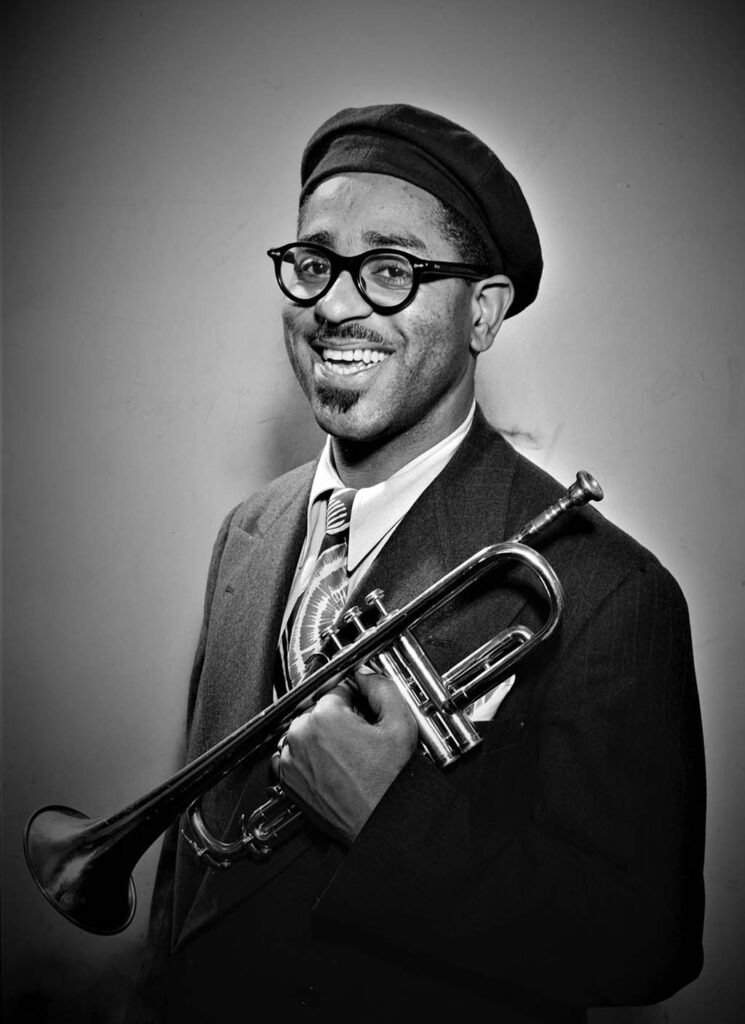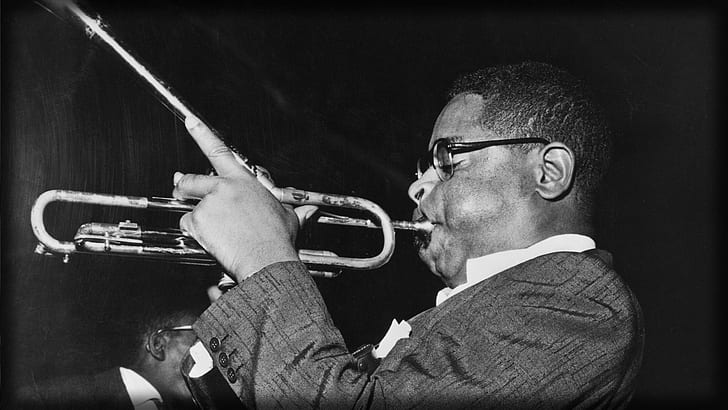Dizzy Gillespie, born John Birks Gillespie on October 21, 1917, was a legendary American jazz trumpeter, bandleader, composer, and one of the key figures in the development of bebop. Here are 10 interesting facts about this influential jazz icon:
- Innovator of Bebop: Dizzy Gillespie is often credited as one of the pioneers of bebop, a revolutionary style of jazz that emerged in the 1940s. Alongside musicians like Charlie Parker and Thelonious Monk, Gillespie played a crucial role in reshaping the landscape of jazz.
- Pioneering Afro-Cuban Jazz Fusion: Gillespie was a trailblazer in incorporating Afro-Cuban elements into jazz. He collaborated with Chano Pozo, a Cuban percussionist, and together they created a fusion of Afro-Cuban rhythms with jazz, giving birth to a new subgenre. The classic “Manteca” is a notable example of this fusion.
- Innovative Trumpet Technique: Dizzy Gillespie was renowned for his exceptional trumpet technique, characterized by a unique bent trumpet bell. This modification was not just a visual trademark but also influenced his distinctive sound, contributing to his success as a performer.
- Bebop’s Comedic Ambassador: Gillespie was not only known for his musical talents but also for his charismatic stage presence and comedic personality. He often played with a bent trumpet and had a trademark puffed-out cheeks style, adding a touch of humor to his performances.
- Influence on Jazz Education: Dizzy Gillespie was passionate about jazz education and played a significant role in passing on his knowledge to younger generations. He conducted workshops, taught at universities, and mentored aspiring musicians, contributing to the perpetuation of jazz as an art form.
- Collaborations with Jazz Legends: Gillespie collaborated with numerous jazz legends, including Charlie Parker, Duke Ellington, and Count Basie. These partnerships not only produced remarkable music but also solidified Gillespie’s status as a respected figure in the jazz community.
- Invention of the “Bebop Scale”: Gillespie is credited with the creation of the “bebop scale,” a variation of the traditional major scale that added passing tones. This scale became a fundamental element in the improvisational vocabulary of bebop musicians.
- Political Activism: Beyond his musical contributions, Gillespie was an advocate for civil rights and political activism. He participated in various initiatives to promote racial equality and justice, using his influence to address social issues.
- Global Ambassador of Jazz: Gillespie’s influence extended far beyond the borders of the United States. He toured extensively around the world, spreading the joy of jazz and contributing to the global appreciation of this uniquely American art form.
- Awards and Honors: Dizzy Gillespie received numerous accolades throughout his career, including 14 Grammy Awards. In 1989, he was awarded the Grammy Lifetime Achievement Award, recognizing his immense contributions to the world of jazz.
Dizzy Gillespie’s impact on jazz and music, in general, is immeasurable. His innovative spirit, technical prowess, and commitment to musical and social progress continue to inspire musicians and enthusiasts alike.


No responses yet